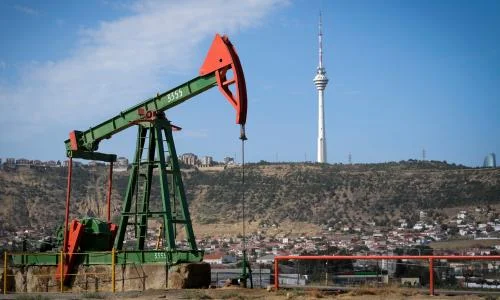The UK says it has increased its contribution to the World Bank, in a move that will boost prospects for climate finance.
The UK is expected to put forward £1.98bn in funding over three years, an increase of about 40% on the previous pledge wext week, at a meeting in Seoul of the International Development Association (IDA) – the body that funds the World Bank’s support for low-income countries.
Anneliese Dodds, who is the development minister, said: “Britain is back with a voice on the world stage. When we said we would take a new approach to development, built on genuine partnerships and based on respect, we meant it. Leaders of low-income countries around the world called for stronger IDA contributions and we listened.”
The World Bank and its fellow multilateral development banks (MDBs) will play a key role in providing the climate finance, mostly in the form of grants and loans, which will be needed to meet commitments made last week at the Cop29 UN climate summit.
Experts and campaigners welcomed the cash injection. Avinash Persaud, climate advisor to the president of the Inter American Development Bank, said: “I recognise the challenging circumstances in which this commitment has been made to some of the most vulnerable countries. I personally wish it was more, but I very much welcome the strong endorsement this makes to the multilateral system.”
Read also: Report: Plastics lobbyists make up biggest group at vital UN treaty talks
Mafalda Duarte, the executive director of the Green Climate Fund, said: “The UK government is fiscally constrained, so this is quite positive.”
Adrian Lovett, the UK executive director of the campaign group ONE, said: “Every pound invested by the UK in IDA helps to catalyse far more from others, ensuring the maximum value to British taxpayers. We look to other countries, including France, Canada and Sweden, to now make their pledges and complete this investment package.”
Recriminations continue to fly after the Cop29 summit, which ended on Sunday amid rancour and accusations that the rich world had betrayed the poor, and that the hosts had stage-managed the conference.
Under the deal that was finally agreed, the governments of developed countries agreed only to supply $300bn (£236bn) of the $1.3tn a year that developing countries have been promised by 2035, in part through the MDBs. The rest is likely to come from the private sector and new forms of finance.
Story was adapted from the Guardian.
